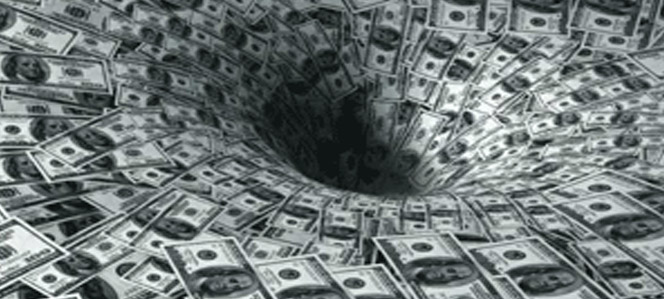 “We Have Here No Lasting City”
“We Have Here No Lasting City”By Rev. Robert Barron
The country, as you all know, has been reeling these past several weeks from the economic crisis that has affected the stock market, as well as the bond and credit markets. Many who are knowledgeable in the field say that this downturn is as bad as the Great Depression of 1929 and they worry that its long-term consequences are largely unknown. Certainly, an increase in unemployment, the foreclosure of many mortgages, a staggering loss of investments, and the collapse of numerous businesses are already stark realities. Many people have approached me to ask what spiritual wisdom and practical advice the church has to offer in the face of such a financial disaster.
I would first point out that economics is seen by the church as part of morality, since it is crucial to the maintenance of the common good. Furthermore, in the recent social teaching of the Popes, the market economy has come in for special praise as an economic system that not only produces goods and services with admirable efficiency but that also honors the dignity of the human being as a free and self-directing agent. It is, the Popes have argued, the economic form that corresponds to a democratic polity. Therefore, maintaining the health and viability of our economic system is of pressing ethical importance. We are all obliged, precisely as morally engaged persons, to work to ameliorate the situation on both the micro and macro level. More to it, the principle of subsidiarity—the master idea of Catholic social theory—dictates that the government can and should intervene in the economy when the latter’s problems cannot be solved at the more local level. It seems to me that the steps taken by the federal government—from the bailout to the shoring up of regulations and investment safeguards—are altogether congruent with this principle.
But there is a deeper, more strictly spiritual dimension to this crisis. It has to do with the Biblical conviction that “we have here no lasting city.” This world is good, indeed very good, but it is, at the same time, fleeting, ephemeral, evanescent. The psalmist tells us that our lives are over “like a sigh” and that we are like “flowers which bloom in the morning but which by evening wither and fade.” As his disciples gazed up admiringly at the splendor of the Jerusalem temple, Jesus commented that “not one stone will be left upon another, but all will be destroyed.” These aren’t “pessimistic” observations; they are deeply realistic and finally liberating. The paradigmatic sin in the Bible is idolatry, defined as the deification of something or someone less than God. This spiritual mistake conduces to a whole series of crises both interior and exterior, for it upsets the fundamental order of things. In the evocative language of the book of Genesis, the original sin (from which all human dysfunction has flowed) was an act of idolatry, Adam’s hopeless attempt to turn his own ego into God. This Adamic distortion has taken many forms over the course of human history: the idolization of country, culture, political party, charismatic leader, or economic system. Elemental to the spiritual life is the awareness that all such earthly things are fleeting and that one should, accordingly, place one’s confidence only in the eternal God. Though it’s hard for us to imagine, our political and economic system will one day fade away, and our status as the one great superpower will end. (Imagine how difficult it would have been for a Roman aristocrat in the year 150 to think that the Roman order would ever fade.) And this is why the shaking of the foundations can be, from a spiritual standpoint, a salutary reminder. Recently, I read a story of a former Wall Street trader who has become an Eastern Orthodox monk. He now urges his former colleagues in the financial world to place a jar of dirt on their desks, to remind them of what is finally important.
What practical advice can I give? First, cultivate the economic habits that foster both your own good and the common good. Though I’m oversimplifying a bit, a crisis such as the one we’re passing through, is born of certain bad habits and practices: a willingness to live beyond one’s means, to pile up dangerous amounts of debts, to act as though contractual agreements are not binding, to focus exclusively on one’s own economic advantage. I would contrast these with the virtues placed through hard experience in the hearts of the generation that endured the Great Depression. Since we are so richly interconnected, our instincts for justice and economic responsibility can foster the common good. And secondly, cultivate an attitude of detachment. This doesn’t mean indifference to practical realities, but it does mean a willingness to let go of anything—including wealth—that is less than God.
